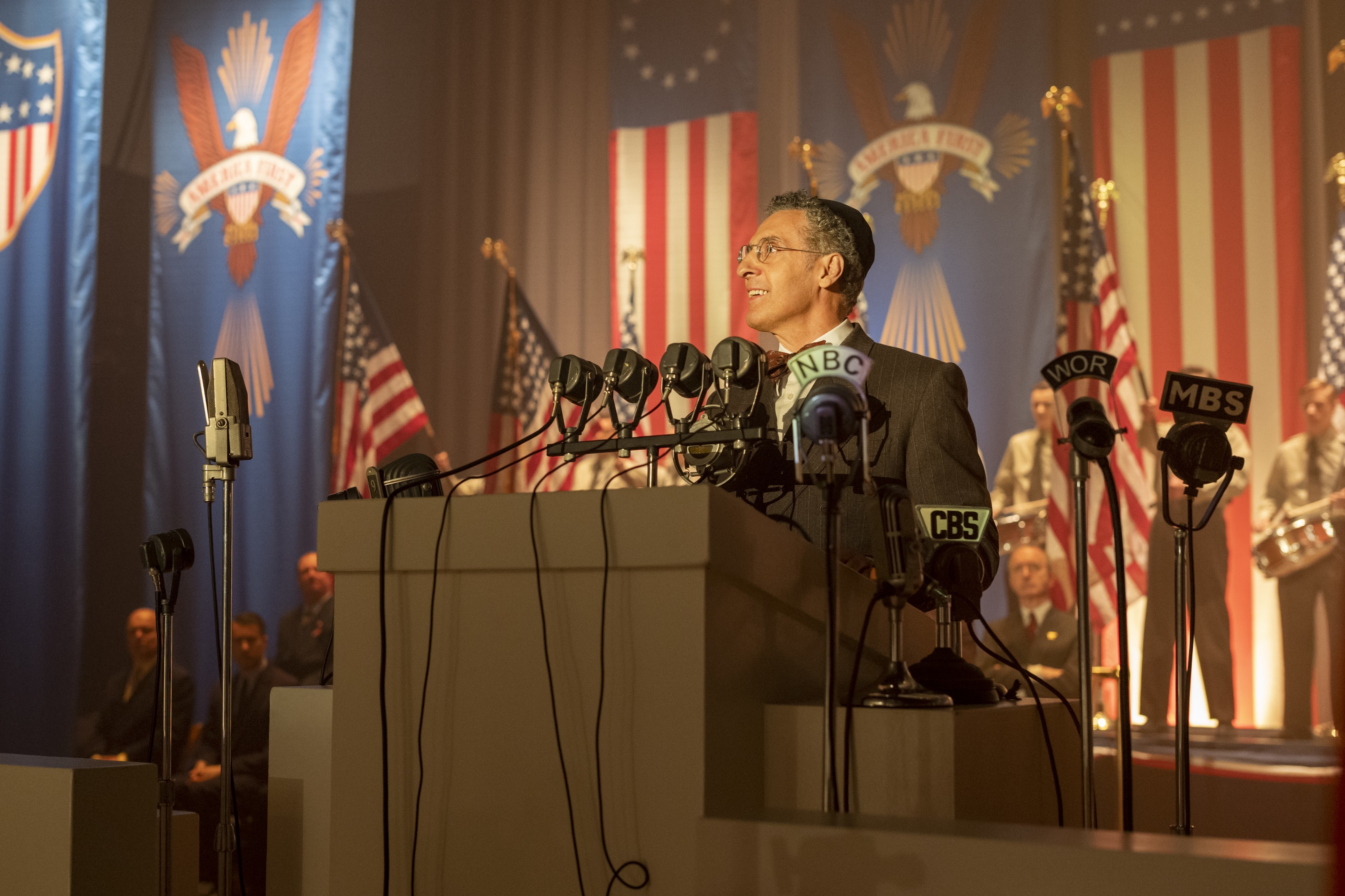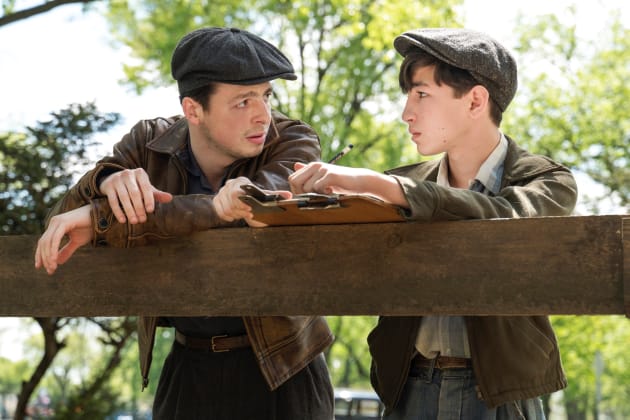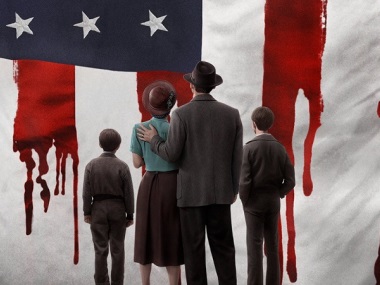The Shadow of Fascism: Exploring the Complexities of HBO’s The Plot In opposition to America
Associated Articles: The Shadow of Fascism: Exploring the Complexities of HBO’s The Plot In opposition to America
Introduction
With nice pleasure, we are going to discover the intriguing subject associated to The Shadow of Fascism: Exploring the Complexities of HBO’s The Plot In opposition to America. Let’s weave fascinating info and supply contemporary views to the readers.
Desk of Content material
The Shadow of Fascism: Exploring the Complexities of HBO’s The Plot In opposition to America

HBO’s The Plot In opposition to America, a miniseries primarily based on Philip Roth’s 2004 novel, is not merely a historic drama; it is a chillingly prescient exploration of the fragility of democracy and the seductive attraction of authoritarianism. Set in opposition to the backdrop of Nineteen Forties America, the collection imagines a actuality the place aviator Charles Lindbergh, a charismatic however isolationist determine with identified anti-Semitic leanings, wins the presidential election in opposition to Franklin D. Roosevelt. This seemingly minor alteration to historical past unleashes a cascade of occasions that profoundly impression the lives of the Levin household in Newark, New Jersey, and, by extension, all the nation.
The present masterfully avoids simplistic good versus evil narratives. It does not painting Lindbergh as a cartoonish villain however as a posh and compelling determine, whose attraction lies in his potent mix of nationalism, anti-interventionism, and veiled anti-Semitism. His rhetoric, rigorously crafted and subtly insidious, resonates with anxieties about financial hardship and overseas entanglements, tapping right into a deep properly of societal unease. This nuanced portrayal of Lindbergh is essential to the collection’ energy, highlighting how even seemingly cheap people could be seduced by extremist ideologies.
The core of the narrative revolves across the Levin household: Herman, a working-class Jewish man; his spouse, Bess, a practical and fiercely protecting mom; their teenage son, Philip; and their youthful son, Sandy. The collection meticulously charts their experiences as Lindbergh’s presidency slowly however certainly transforms American society. The preliminary unease and refined acts of discrimination escalate into overt anti-Semitism, mirroring the rise of fascism in Europe. The present cleverly makes use of the household’s microcosm for example the broader societal shifts going down.
The present’s energy lies in its intimate portrayal of the Levin household’s struggles. We witness the gradual erosion of their sense of security and belonging as anti-Semitic sentiments develop into more and more normalized. The refined modifications are maybe probably the most disturbing: the whispered feedback, the exclusion from social circles, the growing visibility of pro-Lindbergh propaganda. These seemingly small acts accumulate, making a suffocating environment of concern and uncertainty. The present successfully demonstrates how the normalization of prejudice can result in widespread acceptance of violence and discrimination.
Herman, a person of pragmatism, initially tries to downplay the importance of Lindbergh’s victory. He clings to the hope that issues will return to regular, a hope that slowly fades as the truth of Lindbergh’s America sinks in. His inner battle – between his need for safety and his rising consciousness of the risk to his household – kinds a central emotional arc of the collection. Bess, alternatively, is extra instantly perceptive of the hazard, her maternal instincts driving her to guard her household from the encroaching darkness. Her unwavering energy and fierce willpower function a counterpoint to Herman’s preliminary hesitancy.
Philip, the older son, grapples with the altering social panorama via the lens of adolescence. He witnesses firsthand the rising intolerance and the refined methods wherein it impacts his friendships and his sense of self. His experiences supply a strong perspective on the impression of political extremism on the youthful era. The youthful son, Sandy, is simply too younger to completely comprehend the gravity of the state of affairs, however his innocence is steadily eroded as he turns into conscious of the rising anti-Semitism round him.
The collection cleverly interweaves the private narrative of the Levin household with broader historic occasions. We see the rise of the America First Committee, a real-life group that mirrored Lindbergh’s isolationist views and infrequently employed anti-Semitic rhetoric. The present depicts the growing affect of this group and the gradual erosion of democratic establishments below Lindbergh’s presidency. This parallel narrative underscores the terrifying ease with which democratic norms could be undermined.
The present additionally explores the complexities of Jewish American identification throughout this era. The Levin household’s experiences spotlight the inner divisions throughout the Jewish neighborhood, with some advocating for assimilation and others for a extra assertive response to the rising risk. This inner battle provides one other layer of complexity to the narrative, showcasing the challenges confronted by a neighborhood grappling with each inner and exterior pressures.
The Plot In opposition to America isn’t just a historic drama; it is a cautionary story. It serves as a stark reminder of the risks of unchecked nationalism, the seductive attraction of charismatic leaders, and the fragility of democratic establishments. The collection’ energy lies in its potential to create a plausible various historical past that resonates deeply with up to date anxieties. The parallels between Lindbergh’s America and up to date political landscapes are simple, making the present’s message all of the extra related and unsettling.
The present’s visible model enhances its narrative successfully. The muted coloration palette and the practical portrayal of Nineteen Forties America create a way of authenticity and immerse the viewer within the interval’s environment. The soundtrack, too, contributes considerably to the general temper, typically using unsettling musical cues to intensify the sense of unease and impending doom.
Whereas some might criticize the collection for its imagined historical past, its worth lies not in its historic accuracy however in its exploration of timeless themes. The anxieties it evokes – concerning the rise of authoritarianism, the erosion of democratic norms, and the risks of unchecked prejudice – are as related at present as they have been within the Nineteen Forties. By presenting a fictional but believable situation, the present forces viewers to confront uncomfortable truths concerning the human capability for each good and evil.
In conclusion, The Plot In opposition to America is a masterclass in historic fiction, a chillingly related exploration of the fragility of democracy, and a strong reminder of the significance of vigilance within the face of extremism. It is a present that stays with you lengthy after the credit roll, prompting reflection on the insidious nature of prejudice and the fixed have to defend the rules of freedom and equality. Its enduring energy lies in its potential to translate a posh historic context right into a deeply private and emotionally resonant narrative, making it a must-watch for anybody enthusiastic about historical past, political science, or just compelling storytelling.





)


Closure
Thus, we hope this text has supplied invaluable insights into The Shadow of Fascism: Exploring the Complexities of HBO’s The Plot In opposition to America. We admire your consideration to our article. See you in our subsequent article!

